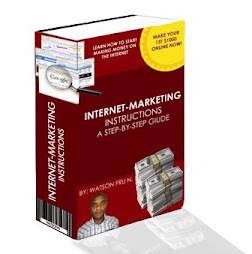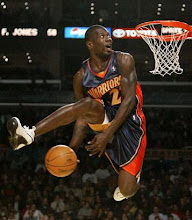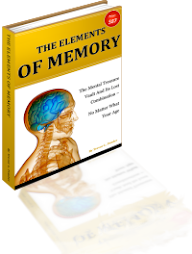Monday, 23 March 2009
Surviving and thriving "Off The Grid"
Nji,
Ever since I was 14 or 15 year old, I desired to live
"off the grid".
This didn't mean living in Montana and growing my
own food. It meant becoming independent of the
corporate suit-and-tie world and not living under
somebody's thumb. My dad lived his life under
somebody's thumb and for example one time he
was "forced to resign."
(Don't you think sometimes there's more dignity
in being outright FIRED, than pretending, for the
sake of appearance, to go along with somebody's
decision to throw you under the bus?)
"Off the Grid" was the direction I was already headed at
age 17, when I met Dr. Lee. I already had a business
building and selling stereo equipment and was
pursing that with passion.
Dr. Lee was a friend of the family and he was the
highest-paid faculty member at a major state
university. He was an internationally known
management consultant and his modest luxury
contrasted sharply with our own frugality.
One night he bought me and my brother a Coke
and told us his story. He'd grown up in the Korean
war and was reduced to stealing vegetables to
feed his brothers and sisters. Once in desperation,
he prayed, "God if you get me out of this mess I'll
work harder than anybody."
Work hard he did. He came to the US, got his Ph.D.
and rose quickly through the ranks of academia.
Now in his early 40's he was the chairman of the
management department at the University and he
charged $3,000 to $5,000 per day for consulting.
He said, "People ask me, why do you charge that
much money for consulting? Well it's not for money,
it's for respect. When a CEO is paying you five
thousand dollars a day to tell him what's wrong with
his company, then when you sit down and tell him,
he takes NOTES."
He advised me: "Perry, you should go to college.
Someday you might decide building speakers is for
high school kids and you might want to do something
else."
This was the first time I had ever seen hard work
as something pleasurable and rewarding. For the
first time I saw it was possible to work hard and
GET AHEAD. That hard work could earn you wide
respect and a sense of accomplishment. That work
is not a necessary evil but something that can be
genuinely rewarding and engaging.
A major, major shift in my thinking.
His talk about taking academia seriously struck
home too. It's one of the reasons I pursued an
engineering degree, something I've always been
thankful for.
The academic grid was a soul-less grind. I liked the
*idea* of a university but I didn't like the university
itself. The 23 hours of calculus and advanced math
was a bitch. In my engineering classes I was a B
and C student.
I would always think of that proverb that goes,
"The A students become professors and the B
students work for the C students..."
"...then eventually one of the C students donates
the money for a performing arts center."
I always felt myself being beckoned to leave the
grid and go to that entrepreneurial version of growing
your own food in Montana. Some people are just
blessed [cursed] with independent spirits.
Some of us just can't slide into the boring routine.
That conversation with Dr. Lee on a Friday night
was profoundly influential. Today I'm an "off the grid"
college professor of sorts. A college professor for
ragtag entrepreneurs and corporate rejects, one
who almost never wears a suit and who lives on
a different grid, the Internet.
Where the geeks, freaks and misfits congregate.
Congratulations, if you're still reading, you're probably
one of us.
On the grid, your education comes from institutions
and such. Seasoned entrepreneurs know that MBA's
are, for the most part, permanently damaged and
unable to compete with us street fighters. Mercifully,
there are exceptions, but the typical MBA is a boy
destined for the corporate world. A domesticated
animal.
Off the grid, your education comes from other
entrepreneurs. Class takes place in informal
mentorship, coaching and peer advisory groups
who meet in shorts and flipflops in undisclosed
locations.
People ask you what you do for a living and you
don't really have an explanation that is readily
understood. "I sell stuff on the Internet" will have
to suffice.
Books, CD's, online discussion boards and the
occasional seminar were enough to wrest me free
from the Dilbert Cube.
But once I was out I needed much more than that
in order to survive and thrive. Because the irony of
this game is this:
1) There are no secrets. At least 98% of you might
want to know about marketing and business
success is out there on the Internet. Much of this
information is free. That's the YIN.
2) But there is a YANG. The yang is, knowing
which of the free advice is good and which is bad,
and which applies to you right now, is a steep
challenge.
Case in point: Your email is flooded with perfectly
good advice from all kinds of people. Only 1% of
it applies to you RIGHT NOW.
Most people will apply the right advice at the wrong
time and spend the rest of their life and their life savings
going around in circles.
I don't know about you, but I'm too risk averse for that.
The Secret Societies and the closed-door coaching
sessions are mostly about identifying which of the
743 good ideas is the BEST one to execute, right now.
Which is why, since I left the Dilbert Cube in 2001, I
have never spent less than $10,000 a year on education.
Before that it had been more like $1,000 a year.
I wouldn't be caught dead NOT being a member of a
private, peer-to-peer coaching group.
Sometimes it's possible to form these for free. However
the quality of the membership and the advice you're
getting from the other members is always in question.
If you spend $14,000 a year to be a member of something
like my own Roundtable group
( http://www.perrymarshall.com/adwords/roundtable ), what
you're paying for is 1) knowing that the other members are
HIGH quality and meet significant qualifications, and
2) having a group leader who undoubtedly has his head
screwed on straight.
Butter does not sharpen iron. Iron sharpens iron.
I would credit my own post-Dilbert cube success to having
made very, very few significant mis-steps. Because whenever
I had a major decision to make, I earnestly sought advice. If I
was launching a new campaign or working through problems
with a client, I always made sure I obtained the best advice
money can buy.
There is a LOT of foolishness out there. I pay attention to very,
very few people. I take advice from very few people. For
example, on Twitter I'm considered a "Twitter Snob." I've got
2814 followers and I'm only following 24.
In the Twitterverse, that's an unthinkable ratio.
(For now. It will change as Twitter matures.)
I'm just taking 80/20 seriously. 80/20 says, 50% of the best
results come from 1% of your available choices. That, my
friend, is a mathematical fact. It's as inevitable as gravity.
Success is mostly a matter of sidestepping the foolish
decisions. Foolish decisions set you back; wise ones
move you forward. The difference between backwards
and forwards acceleration is huge.
Our next Roundtable meeting is mid-May in Chicago and
the entrance ramp to Roundtable is the 2-day, 4-man
intensive. Next one is April 29-30. I have two seats left.
Find out more and apply here:
http://www.perrymarshall.com/adwords/roundtable/
Perry Marshall
Ever since I was 14 or 15 year old, I desired to live
"off the grid".
This didn't mean living in Montana and growing my
own food. It meant becoming independent of the
corporate suit-and-tie world and not living under
somebody's thumb. My dad lived his life under
somebody's thumb and for example one time he
was "forced to resign."
(Don't you think sometimes there's more dignity
in being outright FIRED, than pretending, for the
sake of appearance, to go along with somebody's
decision to throw you under the bus?)
"Off the Grid" was the direction I was already headed at
age 17, when I met Dr. Lee. I already had a business
building and selling stereo equipment and was
pursing that with passion.
Dr. Lee was a friend of the family and he was the
highest-paid faculty member at a major state
university. He was an internationally known
management consultant and his modest luxury
contrasted sharply with our own frugality.
One night he bought me and my brother a Coke
and told us his story. He'd grown up in the Korean
war and was reduced to stealing vegetables to
feed his brothers and sisters. Once in desperation,
he prayed, "God if you get me out of this mess I'll
work harder than anybody."
Work hard he did. He came to the US, got his Ph.D.
and rose quickly through the ranks of academia.
Now in his early 40's he was the chairman of the
management department at the University and he
charged $3,000 to $5,000 per day for consulting.
He said, "People ask me, why do you charge that
much money for consulting? Well it's not for money,
it's for respect. When a CEO is paying you five
thousand dollars a day to tell him what's wrong with
his company, then when you sit down and tell him,
he takes NOTES."
He advised me: "Perry, you should go to college.
Someday you might decide building speakers is for
high school kids and you might want to do something
else."
This was the first time I had ever seen hard work
as something pleasurable and rewarding. For the
first time I saw it was possible to work hard and
GET AHEAD. That hard work could earn you wide
respect and a sense of accomplishment. That work
is not a necessary evil but something that can be
genuinely rewarding and engaging.
A major, major shift in my thinking.
His talk about taking academia seriously struck
home too. It's one of the reasons I pursued an
engineering degree, something I've always been
thankful for.
The academic grid was a soul-less grind. I liked the
*idea* of a university but I didn't like the university
itself. The 23 hours of calculus and advanced math
was a bitch. In my engineering classes I was a B
and C student.
I would always think of that proverb that goes,
"The A students become professors and the B
students work for the C students..."
"...then eventually one of the C students donates
the money for a performing arts center."
I always felt myself being beckoned to leave the
grid and go to that entrepreneurial version of growing
your own food in Montana. Some people are just
blessed [cursed] with independent spirits.
Some of us just can't slide into the boring routine.
That conversation with Dr. Lee on a Friday night
was profoundly influential. Today I'm an "off the grid"
college professor of sorts. A college professor for
ragtag entrepreneurs and corporate rejects, one
who almost never wears a suit and who lives on
a different grid, the Internet.
Where the geeks, freaks and misfits congregate.
Congratulations, if you're still reading, you're probably
one of us.
On the grid, your education comes from institutions
and such. Seasoned entrepreneurs know that MBA's
are, for the most part, permanently damaged and
unable to compete with us street fighters. Mercifully,
there are exceptions, but the typical MBA is a boy
destined for the corporate world. A domesticated
animal.
Off the grid, your education comes from other
entrepreneurs. Class takes place in informal
mentorship, coaching and peer advisory groups
who meet in shorts and flipflops in undisclosed
locations.
People ask you what you do for a living and you
don't really have an explanation that is readily
understood. "I sell stuff on the Internet" will have
to suffice.
Books, CD's, online discussion boards and the
occasional seminar were enough to wrest me free
from the Dilbert Cube.
But once I was out I needed much more than that
in order to survive and thrive. Because the irony of
this game is this:
1) There are no secrets. At least 98% of you might
want to know about marketing and business
success is out there on the Internet. Much of this
information is free. That's the YIN.
2) But there is a YANG. The yang is, knowing
which of the free advice is good and which is bad,
and which applies to you right now, is a steep
challenge.
Case in point: Your email is flooded with perfectly
good advice from all kinds of people. Only 1% of
it applies to you RIGHT NOW.
Most people will apply the right advice at the wrong
time and spend the rest of their life and their life savings
going around in circles.
I don't know about you, but I'm too risk averse for that.
The Secret Societies and the closed-door coaching
sessions are mostly about identifying which of the
743 good ideas is the BEST one to execute, right now.
Which is why, since I left the Dilbert Cube in 2001, I
have never spent less than $10,000 a year on education.
Before that it had been more like $1,000 a year.
I wouldn't be caught dead NOT being a member of a
private, peer-to-peer coaching group.
Sometimes it's possible to form these for free. However
the quality of the membership and the advice you're
getting from the other members is always in question.
If you spend $14,000 a year to be a member of something
like my own Roundtable group
( http://www.perrymarshall.com/adwords/roundtable ), what
you're paying for is 1) knowing that the other members are
HIGH quality and meet significant qualifications, and
2) having a group leader who undoubtedly has his head
screwed on straight.
Butter does not sharpen iron. Iron sharpens iron.
I would credit my own post-Dilbert cube success to having
made very, very few significant mis-steps. Because whenever
I had a major decision to make, I earnestly sought advice. If I
was launching a new campaign or working through problems
with a client, I always made sure I obtained the best advice
money can buy.
There is a LOT of foolishness out there. I pay attention to very,
very few people. I take advice from very few people. For
example, on Twitter I'm considered a "Twitter Snob." I've got
2814 followers and I'm only following 24.
In the Twitterverse, that's an unthinkable ratio.
(For now. It will change as Twitter matures.)
I'm just taking 80/20 seriously. 80/20 says, 50% of the best
results come from 1% of your available choices. That, my
friend, is a mathematical fact. It's as inevitable as gravity.
Success is mostly a matter of sidestepping the foolish
decisions. Foolish decisions set you back; wise ones
move you forward. The difference between backwards
and forwards acceleration is huge.
Our next Roundtable meeting is mid-May in Chicago and
the entrance ramp to Roundtable is the 2-day, 4-man
intensive. Next one is April 29-30. I have two seats left.
Find out more and apply here:
http://www.perrymarshall.com/adwords/roundtable/
Perry Marshall
Subscribe to:
Post Comments (Atom)



No comments:
Post a Comment